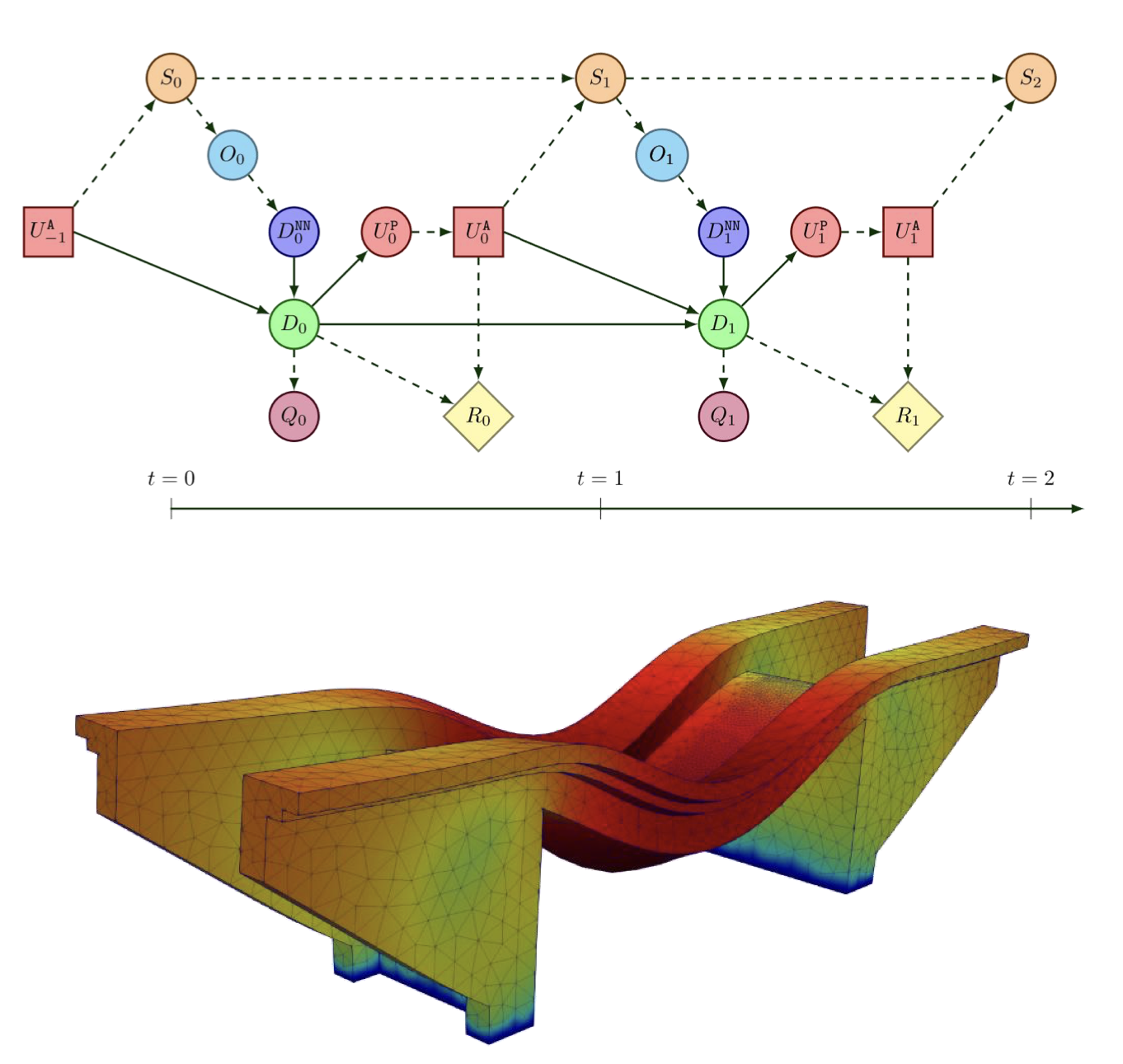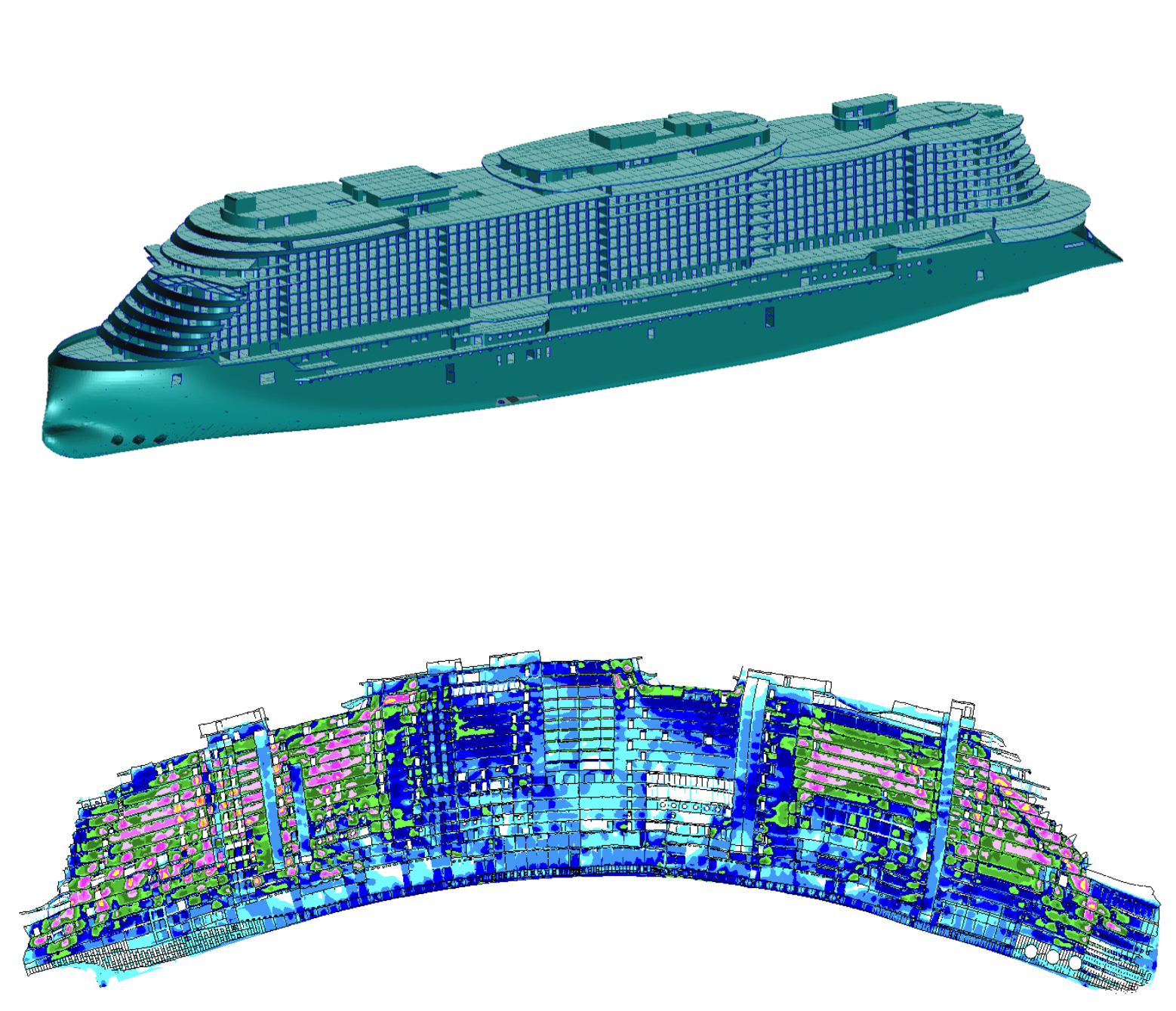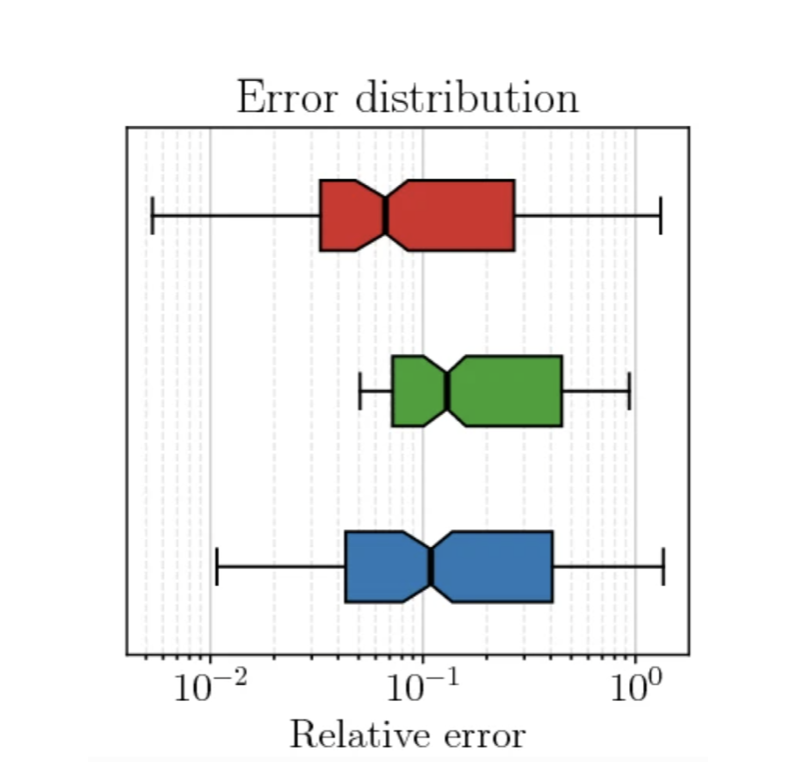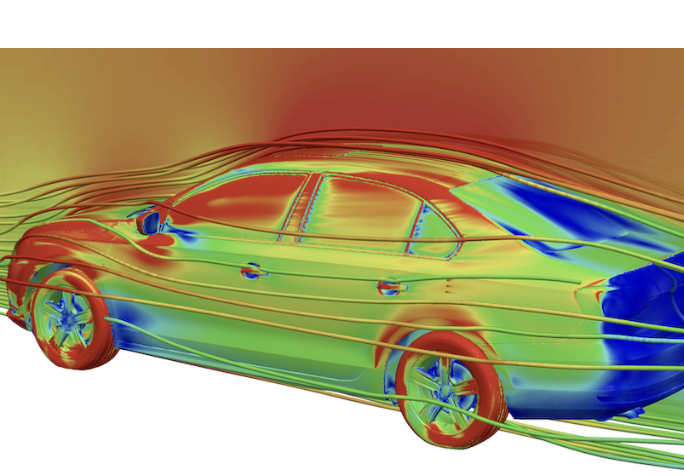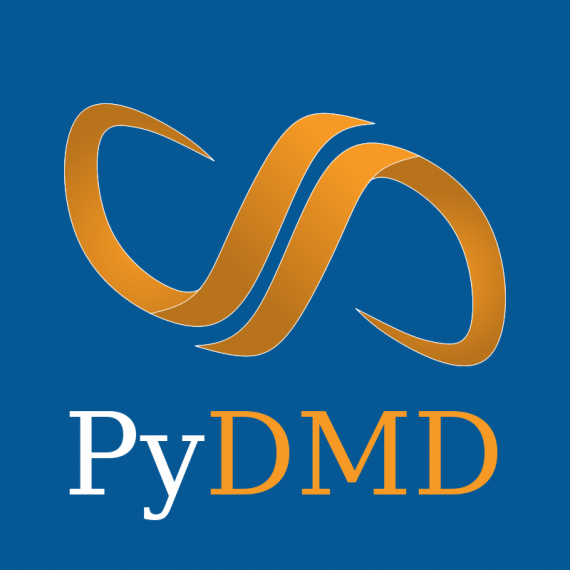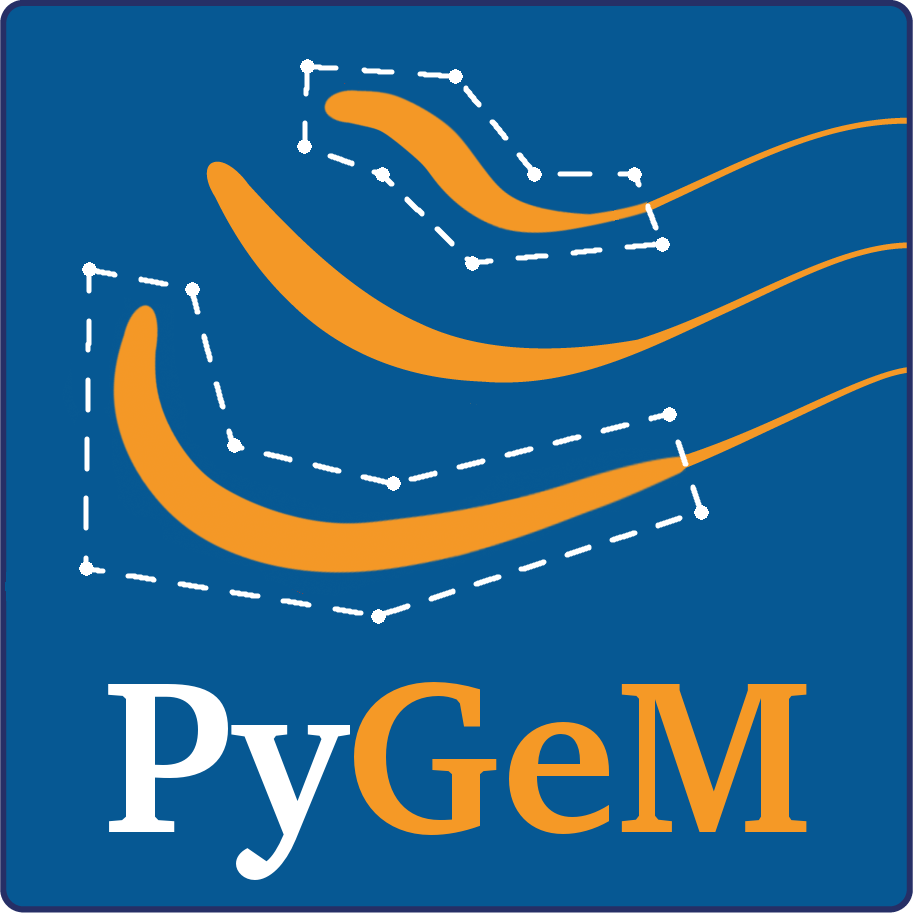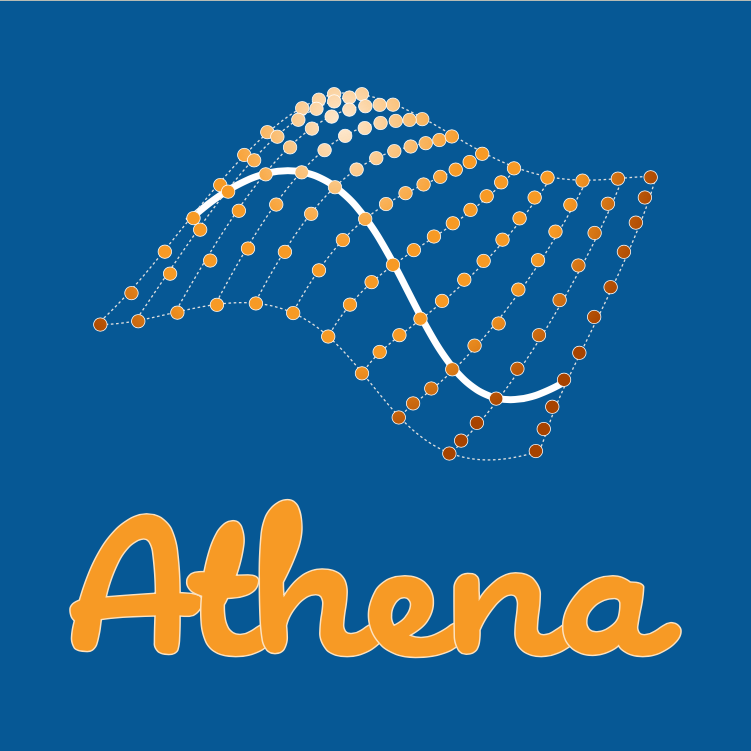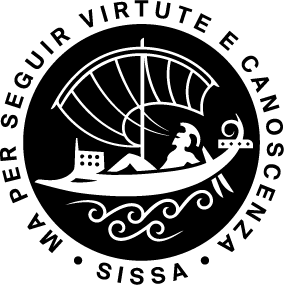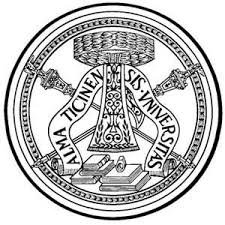Marco Tezzele marco.tezzele@austin.utexas.edu | | | | |
About
Academic CV
I am a postdoctoral fellow in Karen Willcox's group at the Oden Institute, University of Texas at Austin.
I work within the fields of applied mathematics, scientific machine learning, and digital twins. My research interests include the development of data-driven reduced order methods and parameter space reduction techniques. Currently, I am working on a NASA University Leadership Initiative project, developing a predictive digital twin of an autonomous drone used for cargo missions in an urban environment. This integrates reduced order modeling, uncertainty quantification, and real-world applications with economic and societal impacts.
In the last years, I developed of non-intrusive reduced order methods such as proper orthogonal decomposition with interpolation and dynamic mode decomposition, with applications in naval, nautical, biomedical, and automotive engineering. I created several scientific Python packages. I also coupled ROMs with reduction in parameter space using active subspaces (AS). I studied the effect of incorporating low-intrinsic dimensionality bias in a multi-fidelity setting to enhance regression and solution manifold reconstruction. I also extended AS developing kernel-based active subspaces and local active subspaces.
I received my Ph.D. in Mathematical Analysis, Modelling, and Applications at the International School of Advanced Studies (SISSA), Trieste, Italy, where I was part of the SISSA mathLab group, under the supervision of Gianluigi Rozza.
My industrial Ph.D. grant was sponsored by Fincantieri S.p.A. (see the project here). The topic was the structural optimization of a passenger ship during the design step through parametric techniques and computational reduction.
|
|
A multi-fidelity approach coupling parameter space reduction and non-intrusive POD with application to structural optimization of passenger ship hulls
[ bib | DOI | arXiv ]
Marco Tezzele, Lorenzo Fabris, Matteo Sidari, Mauro Sicchiero, Gianluigi Rozza
International Journal for Numerical Methods in Engineering, 124(5):1193–1210, 2023.
|
Student Mentoring
|
Software
Experience
Education
|
International School of Advanced Studies, SISSA - Ph.D. Mathematical Analysis, Modelling, and Applications financed by Fincantieri S.p.A. - (2018-2021)
|
|
ICTP & SISSA - Master in High Performance Computing - (2014-2015)
|
|
Technische Universität Kaiserslautern - ERASMUS Programme - (2012)
|
|
University of Milan - MSc Mathematics - (2010-2014)
|
|
University of Pavia - BSc Mathematics - (2006-2010)
|

